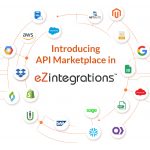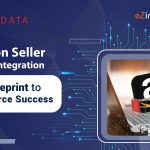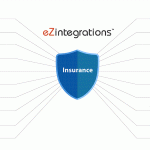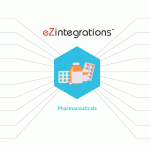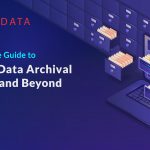Introduction
The term data automation in SaaS can mean different things to different people. For some, it might conjure up images of advanced artificial intelligence (AI) systems that can sort, interpret, and act on data with little or no human intervention. For others, it might simply refer to the process of automating the collection and integration of data from multiple sources.
Regardless of how it is defined, SaaS data automation is transforming the enterprise landscape. By automating the tasks of data collection, integration, and analysis, organizations can gain insights more quickly, respond more rapidly to changes, and improve decision-making.
In this article, we will explore how data automation is changing the enterprise landscape and the benefits it can provide.
There’s no doubt that data automation is transforming the enterprise landscape. By automating the process of data collection, analysis, and decision-making, businesses can increase efficiency, optimize operations, and make better decisions.
Data automation can also help businesses scale by integrating data from multiple sources and making it available in real-time. This allows businesses to make faster and more informed decisions.
However, data automation is not without its challenges. The technology can be complex and expensive to implement. Additionally, data automation can also lead to job losses as businesses replace human workers with machines.
Despite these challenges, data automation is inevitable. Businesses that don’t embrace data automation will be left behind. To learn more about data automation and its impact on businesses, read on!
What is Data Automation?
The term “data automation” can mean different things to different people. For some, it might conjure up images of advanced artificial intelligence (AI) systems that can sort, interpret, and act on data with little or no human intervention. For others, it might simply refer to the process of automating the collection and integration of data from multiple sources.
Regardless of how it is defined, data automation is transforming the enterprise landscape. By automating the tasks of data collection, integration, and analysis, organizations can gain insights more quickly, respond more rapidly to changes, and improve decision-making.
Data Automation for SaaS
Data automation for SaaS is a process whereby data is collected and stored in a central location, then analyzed and used to improve the performance of a SaaS product.
This process can be used to improve customer onboarding, reduce customer churn, or improve customer satisfaction. By automating the data collection and analysis process, a SaaS company can free up time and resources that can be better spent on other areas of the business.
Data automation is the process of automatically generating or updating data using algorithms or software. In the context of SaaS, data automation can be used to manage and update customer data, pricing data, product data, and other types of data.
Data automation can help to improve the accuracy of data, reduce the amount of manual work required to maintain data, and improve the efficiency of data management. It can also help to free up resources so that they can be better used elsewhere in business.
There are many different data automation tools and solutions available, and the best one for your business will depend on your specific needs and requirements. However, some of the most popular data automation tools for SaaS include data integration tools, data management platforms, and data governance solutions.
3. How can Data Automation Benefit your Business?
More and more businesses are turning to data automation in order to drive efficiency and improve decision making. Data automation can help businesses by reducing the amount of manual data entry, providing real-time insights, and improving accuracy.
While data automation may seem like a complex process, it can be broken down into a few simple steps. First, you need to identify the data that you want to collect. Next, you need to set up a system to automatically collect that data. Finally, you need to analyze the data to look for patterns and insights.
Data automation can provide a number of benefits for businesses, including increased efficiency, improved decision making, and increased accuracy. If you’re looking to improve your business, data automation is a great place to start.
Data automation can benefit your business in many ways. It can help you improve your customer relationships, increase efficiency and productivity, and make better decisions.
Customer Relationship Management
Data automation can help you improve your customer relationships by giving you a better understanding of your customers. You can use data automation to collect customer data and then use that data to create customer profiles. These profiles can help you segment your customers and target them with specific marketing messages.
Increased Efficiency and Productivity
Data automation can also help you increase your efficiency and productivity. By automating repetitive tasks, you can free up your employees to focus on more important tasks. Additionally, data automation can help you eliminate errors and inaccuracies in your data.
Better Decision Making
Data automation can also help you make better decisions. By collecting data and then analyzing it,
4. The data automation process
The data automation process is the most important part of any data management system. It is responsible for handling the data, including gathering, storing, and processing it. The data automation process is also responsible for providing the user with the results of the data processing.
There are many different data automation processes, but they all have the same goal: to provide the user with the results of the data processing. The most common data automation processes are data gathering, data storage, data processing, and data visualization.
Role of Data Integration in Data Automation
Data integration is a process of combining data from multiple sources into a single repository. This allows for easier access and analysis of the data. Data automation is the process of using data integration to automatically generate reports and analytics.
Data integration is a critical part of data automation. Without data integration, data automation would not be possible. Data integration allows for the use of multiple data sources, which can provide a more complete picture of the data being analyzed.
Data automation is a powerful tool that can help businesses improve their operations. By automating the process of data analysis, businesses can save time and money. In addition, data automation can help businesses make better decisions by providing them with more complete and accurate data.
As businesses become more reliant on data, the need for data automation grows. Data automation is the process of automatically collecting, cleansing, and transforming data from multiple sources into a single format. This process can save businesses time and money by reducing the need for manual data entry and data processing.
One of the key components of data automation is data integration. Data integration is the process of combining data from multiple sources into a single database or data warehouse. This process is essential for data automation because it allows businesses to access all of their data in one central location. Data integration can be performed manually or through the use of data integration software.
6. The future of data automation
Data automation is one of the most important and rapidly growing areas of technology. It has the potential to revolutionize the way we collect, process, and visualize data. In the future, data automation will become increasingly sophisticated and will be used in a variety of industries, from healthcare to retail to finance.
Data automation will help us to make better decisions, faster. It will also help us to identify trends and patterns that would otherwise be hidden in large data sets. In the future, data automation will become an essential tool for businesses and organizations of all sizes.


